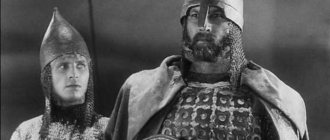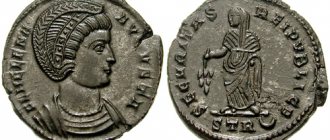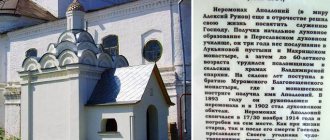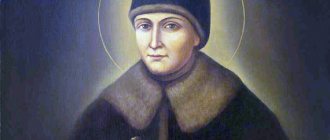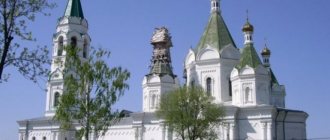| Konstantin Pobedonostsev, 1902 |
Konstantin Petrovich Pobedonostsev
(1827 - 1907), Russian statesman, lawyer, chief prosecutor of the Holy Synod (1880 - 1905). Born on May 21, 1827 in Moscow, in the family of a professor at Moscow University, Pobedonostsev’s grandfather was a priest. There were 11 children in the family; Pobedonostsev himself described his family as “pious, devoted to the Tsar and the Fatherland, hardworking.”
In 1841 he entered the School of Law in St. Petersburg, completed the course in 1846 and settled in his home in Moscow, serving in the Senate.
Contemporaries spoke of the young Pobedonostsev as a man of “a quiet, modest disposition, pious, with a versatile education and a subtle mind.”
Pobedonostsev’s father was preparing him for the priesthood, but he chose a different path. After graduating from the School of Law (1846), Pobedonostsev began serving in the Moscow departments of the Senate.
Pobedonostsev recalled:
“By nature, not at all ambitious, I didn’t look for anything, didn’t ask for anything, happy with what I had and my work, devoted to mental interests, didn’t look for any career and didn’t ask for any position all my life, but not When he was able, he refused any work or any official assignment.
In the 50s, Moscow University, having become depleted of legal professors, turned to me, and I did not refuse, while remaining in the service in the Senate, to lecture there, 8 hours a week, for 5 years.” [1].
From 1859 to 1865 he served as a law professor at Moscow University. His course “Civil Law”, which went through five editions, turned into a reference book for lawyers.
In the late 1850s he acted as a liberal writer and publicist. In the early 1860s, he took an active part in the development of judicial reform (1864), defending the principles of judicial independence, transparency of proceedings and adversarial proceedings.
In 1861, he was invited to teach legal sciences to Tsarevich Nikolai Alexandrovich, for which he moved to St. Petersburg for a year, in 1863 he accompanied the Tsarevich on a trip to Russia and, as he himself writes, “became known to the court.”
In 1865, he left his professorial position and finally moved to St. Petersburg, where he continued his court teaching activities, was a teacher of legal history for Tsarevich Alexander Alexandrovich, and later for his heir Nikolai Alexandrovich: “I became famous in ruling circles, they began to talk about me and attach exaggerated importance to my activities. “I found myself, without any fault of mine, in an atmosphere of lies, slander, rumors and gossip.”
.
In 1868, Pobedonostsev became a senator, and in 1872, a member of the State Council.
“Without any petition on my part and without any participation of the Tsarevich, I was appointed a member of the State Court. Council and here he got the opportunity to express out loud to everyone his opinions on state issues - opinions that he never hid from anyone. So, little by little I acquired a reputation as a stubborn conservative - in opposition to new directions and trends of state liberals.
According to the famous lawyer A.F. Koni, Pobedonostsev’s speeches delivered in the Senate and State Council made a strong impression on the listeners, striking with their impeccable logic, clarity and power of persuasion.
During the same period, he was actively involved in scientific and journalistic activities, publishing 17 books, many articles, documentary collections, translated works on history and jurisprudence.
At the end of the 1870s, a radical change occurred in Pobedonostsev’s views. Pobedonostsev was now convinced of the falsity of the ideas of parliamentarism, freedom of the press, and democracy. He saw in Orthodoxy a consolidating national principle, organically fused with monarchism and the state, in the strengthening of which Pobedonostsev saw the highest meaning of social activity.
| Portrait of the Chief Prosecutor of the Synod K. P. Pobedonostsev. A. V. Makovsky, (1899), State Russian Museum |
In 1880 he was appointed Chief Prosecutor of the Holy Synod, a position he held for 26 years.
After the assassination of Alexander II (1881), when discussing the project of reforms presented by M. T. Loris-Melikov, he sharply criticized the reforms of the 1860-70s. Pobedonostsev is the author of the manifesto of April 29, 1881 “On the Inviolability of Autocracy.” He was one of the founders of the secret government organization “Sacred Squad” (1881-83), designed to fight populist extremism.
In 1896, in the “Moscow Collection,” Pobedonostsev criticized the basic foundations of contemporary Western European culture and the principles of government, seeing the main vices in “democracy and parliamentarism,” because they “will give birth to great unrest,” clouding “Russian crazy heads.” Pobedonostsev explained political revolutions in world history by the intrigues of people.
As a Christian thinker, Pobedonostsev believed that philosophy and science have the status of probabilistic assumptions that cannot contain absolute, unconditional and complete knowledge. Only the Orthodox faith, which the Russian people “feel in their souls,” is capable of providing holistic truth. From the position of Orthodoxy, Pobedonostsev convincingly criticized materialism and positivism. He consistently defended the ideal of a monarchical government, calling contemporary Western democracy “the great lie of our time.”
At the beginning of the century, Pobedonostsev's influence on government policy began to weaken. After the adoption, under the pressure of the revolutionary upsurge, of the Manifesto of October 17, 1905, which proclaimed bourgeois “freedoms,” he resigned on October 19.
Died on March 10, 1907.
The “Historical Messenger” wrote on the death of Pobedonostsev: “For too quarter of a century, the attention of his contemporaries was riveted on his name, it did not leave the columns of our press, some hated and cursed him, others praised him, they bowed before him and blessed him: some saw in him the savior angel of Russia, others - its evil genius. No one treated him with indifference."
.
Gray Cardinal of Alexander III. Konstantin Pobedonostsev
June 2 marked the 190th anniversary of the birth of Konstantin Pobedonostsev, a famous Russian thinker and statesman who is rightfully considered one of the key representatives of Russian conservative thought. In Soviet historical literature, the image of Konstantin Petrovich Pobedonostsev was always filled with negative content, since he was always considered as the main theorist of “reaction” under Emperor Alexander III.
For most of his life, Konstantin Pobedonostsev was engaged in scientific and teaching activities. His father Pyotr Vasilyevich was a professor of literature and literature at the Imperial Moscow University, so a teaching career was not something new and unknown for Konstantin Pobedonostsev. In 1859, 32-year-old Pobedonostsev defended his master's thesis in law, and in 1860 he was elected professor in the department of civil law at Moscow University.
Of course, the impetus for Pobedonostsev’s grandiose career and his gaining a real opportunity to influence the politics of the empire was his appointment at the end of 1861 to the position of teacher of law to the heir to the throne, Grand Duke Nikolai Alexandrovich, the son of Alexander II. This is how Pobedonostsev became thoroughly acquainted with the imperial family. The erudite teacher was involved in the work of commissions preparing judicial reform, and then in 1868 he was included in the Senate. But Pobedonostsev’s peak appointment was his confirmation as Chief Prosecutor of the Holy Synod in April 1880. Initially, the appointment of Konstantin Pobedonostsev as Chief Prosecutor of the Synod was positively received by the Russian liberal intelligentsia, since he was considered a more progressive figure than his predecessor, Count Dmitry Andreevich Tolstoy, who held the post of Chief Prosecutor in 1865-1880. Suffice it to say that after the Synod, Tolstoy soon received an appointment to the post of Minister of Internal Affairs and Chief of Gendarmes. Dmitry Tolstoy was considered a man of extremely conservative beliefs, an opponent of liberal reforms, and the intelligentsia treated him very coolly.
Konstantin Pobedonostsev, unlike Dmitry Tolstoy, in his youth was a man of not just liberal, but even democratic views. He subscribed to Alexander Herzen’s “The Bell,” and as a lawyer he defended the independence of the judiciary. By the way, this is why in 1864 he was involved in carrying out judicial reform - the “liberal” Emperor Alexander II needed precisely such advisers. Therefore, when Pobedonostsev replaced Tolstoy, the liberal public, if not triumphant, at least breathed a sigh of relief. It was believed that the new chief prosecutor of the synod would pursue a more balanced and loyal policy. But this did not happen. Over the years, Konstantin Pobedonostsev’s worldview has changed dramatically.
Almost immediately after his appointment to the new position, Pobedonostsev disappointed Russian liberals. After the assassination of Alexander II in 1881, Pobedonostsev came out with strong support for autocratic power and became the author of the Highest Manifesto of April 29, 1881, in which the autocratic system was declared unshakable in the Russian Empire.
Pobedonostsev became the main ideologist of the government and had a decisive influence on policies in the spheres of education, religion, and interethnic relations. In Soviet times, Pobedonostsev’s policy was called nothing less than protective, but it was based not so much on a loyal desire to please the emperor, but rather on a fairly serious basis from his own theoretical developments. According to his convictions, Pobedonostsev was an unconditional opponent of political democracy, which he considered destructive for the state, especially for Russia. Pobedonostsev saw the main mistake of democratic ideology as a mechanistic understanding of socio-political processes and their simplification. Being a seriously religious person, Pobedonostsev defended the mystical origin of power and endowed it with sacred meaning. Institutions of power, according to Pobedonostsev, have a subtle connection with the very history of the country, its national identity. He considered liberalism and parliamentarism suitable only for those states where there is serious ground for such a system. For example, Pobedonostsev admitted the possibility of the effective existence of a parliamentary system for England, the USA, and small European states like the Netherlands, but did not see its future in the Roman, Germanic, and Slavic countries of Europe. Of course, from Pobedonostsev’s point of view, parliamentarism was not an effective model for the Russian state either. Moreover, for Russia, parliamentarism was, from the point of view of the Chief Prosecutor, harmful and could only entail a progressive moral decline associated with the violation of the primordial, sacred political order of the Russian state.
Pobedonostsev considered the main advantage of the monarchy over parliamentarism to be the colossal personal responsibility of the monarch for the people and state they govern. The elected leadership of the country, aware of its changeability, has much less responsibility. If the power of the monarch is inherited, then presidents and deputies, after holding their posts for several years, resign and are no longer responsible for the future fate of the country and even for the fate of the laws they adopted.
Of course, power needs a certain limiter, and Pobedonostsev also recognized this. But he saw this limiter not in institutions of representation, such as parliament, but in the religious and moral beliefs and qualities of the monarch himself. It is his faith, moral and ethical principles, spiritual development that can become, according to Pobedonostsev, the main obstacle to the development of despotism and abuse. As a person of conservative beliefs, Pobedonostsev paid great attention to religion, and considered the Orthodox Church to be the only correct Christian church. He saw an urgent need to increase the influence of the church on the social and political life of the country. In particular, the chief prosecutor of the synod advocated the large-scale construction of new churches, holding church holidays in the most solemn atmosphere, and supported the opening of parochial schools. But, at the same time, Pobedonostsev’s policy of supporting the Orthodox Church also resulted in infringement of the religious rights and freedoms of non-confessional groups of the population. The Old Believers, Molokans, Doukhobors, Baptists and other similar groups suffered most under him. Pobedonostsev initiated a repressive policy against these religious movements, turning the state repressive apparatus into an instrument for asserting the interests of the Orthodox Church. This position of Pobedonostsev stemmed from his personal understanding of Orthodoxy. For him, religion was not only faith, but also state ideology. Therefore, all heterogeneous groups, especially if their followers were people of Russian origin, represented, from the point of view of the chief prosecutor of the synod, a danger to the security of the state system.
Konstantin Pobedonostsev’s policy towards religious minorities was remembered for his very harsh actions towards Old Believers, Baptists, Molokans, whom the authorities began to persecute and subject to real police repression. Often the actions of the authorities became simply outrageous. For example, in February 1894, Archimandrite Isidor Kolokolov, with the support of the Cossack hundred, captured the Old Believer St. Nicholas Monastery in the village of the Caucasian Kuban region. The Old Believers monks were expelled from their monastery, while the authorities did not hesitate to commit a monstrous act for any Christian - the destruction of the monastery cemetery. The Cossacks destroyed the graves of Bishop Job and Priest Gregory, dug up and burned their bodies, and made latrines in the grave pits. Such cruelty caused misunderstanding in society, and even the majority of the Cossacks of the village, who were not Old Believers, were indignant. This attack, of course, was not the only example of state intervention in the sphere of religion during the years of Chief Prosecutor Konstantin Pobedonostsev.
— Pobedonostsev in his youth
Many preachers of sectarian groups were placed in the Suzdal monastery prison. It is noteworthy that Orthodox clergy were also sent to it, who allowed themselves to criticize the overly authoritarian and cruel policies of the Holy Synod. It is known that Konstantin Pobedonostsev also considered the possibility of placing Leo Tolstoy, whom he considered a heretic, in the monastery prison. But here the sovereign emperor himself intervened, who did not give the chief prosecutor his consent to reprisals against the great writer.
The large Jewish community aroused no less hatred from Pobedonostsev than from representatives of Russian religious minorities. It was Konstantin Pobedonostsev who stood behind the serious anti-Semitic turn in the internal policy of the Russian Empire, and the anti-Semitism of the Chief Prosecutor of the Synod was not understood or recognized by many prominent government and, more importantly, religious figures. The anti-Semitic policy of state power in those years pursued not only the goal of protecting Russia from what Pobedonostsev believed was an alien ethno-confessional community, but also directing popular discontent against the Jews. Pobedonostsev himself, in numerous letters and speeches, did not hide his anti-Semitic views, but at the same time emphasized the intellectual potential of the Jews, which instilled fear in him. Therefore, the Chief Prosecutor of the Synod hoped to evict most of the Jews from the Russian Empire, and dissolve the smaller part into the surrounding population. Pobedonostsev, in particular, initiated the eviction of Jews from Moscow in 1891-1892; under him, Jewish pogroms began to occur, which were opposed by many prominent religious figures, including bishops of the Orthodox Church.
However, the repressive policy of Konstantin Pobedonostsev did not lead to the desired results. It was at the time when he headed the synod that the rapid spread of revolutionary ideas began in the Russian Empire, and revolutionary organizations of Social Democrats, Socialist Revolutionaries, and Anarchists were created. Did Pobedonostsev bring the revolutionary events of 1905-1907 closer with his reactionary policy? This is unlikely, since the growth of revolutionary sentiment in society was caused by a number of socio-economic and political factors, but still one should not exclude a certain influence of the policy of the chief prosecutor of the synod. In an effort to prohibit any dissent, suppress non-confessional communities, censor literature and the press, Pobedonostsev “dug a hole” for autocracy, because. level of economic and social development of the world at the turn of the 19th - 20th centuries. already demanded certain political and cultural reforms. Konstantin Pobedonostsev may have understood this, but did not want to admit it. Nikolai Berdyaev believed that Pobedonostsev was no less a nihilist than the revolutionaries he criticized. Only the object of Pobedonostsev’s nihilistic attitude was not the state system and social system, but a person. Pobedonostsev did not believe in man; he considered human nature “bad” and sinful, and, accordingly, in need of the “iron gloves” of censorship and repression.
Another famous Russian philosopher and theologian, Georgy Florovsky, spoke about Pobedonostsev’s misunderstanding of spiritual life and theology. In the church, Pobedonostsev saw a state institution that made it possible to sacralize the existing political system. Therefore, he sought to prevent discussions on religious topics and mercilessly sent clergymen who allowed themselves to critically evaluate the religious and national policies pursued by the synod to monastery prison.
At the same time, Pobedonostsev’s intelligence and talent were also noted by many contemporaries. Among them were Vasily Rozanov, and Sergei Witte, and the same Nikolai Berdyaev - different people with different positions, but who agreed that Pobedonostsev was truly an extraordinary person, despite all the controversy of his political position. It is difficult to doubt that Konstantin Pobedonostsev sincerely loved Russia and wished it well, only he understood this goodness in his own way. The way parents and grandfathers protect their children and grandchildren, sometimes trying to protect the younger generation from mistakes and “bumps”, but at the same time not understanding that this is the law of development of both man and society - to move forward, to master the new and unknown.
Konstantin Petrovich Pobedonostsev left the post of chief prosecutor of the synod in 1905 - just in the year of the beginning of the First Russian Revolution. By this time he was already a very old 78-year-old man. He failed to prevent the emergence of a parliament in Russia - the State Duma, even if it had much less powers than the parliaments of European states. Konstantin Pobedonostsev witnessed revolutionary events and died in the year of the suppression of the First Revolution - in 1907, at the eightieth year of his life. There was no longer a place for a person from the 19th century, who had absorbed the value of the old, autocratic Russia, in the new country, which it certainly became after the adoption of the Manifesto. Pobedonostsev grew old along with old Russia and died only ten years before the Russian autocracy itself ceased to exist.
Beginning of a political career
In three years, from 1846 to 1849, Konstantin Petrovich turned from an unknown official into an influential figure in the legal world. On December 23, 1849, the young man was elevated to the rank of collegiate assessor. His scientific works were rightfully published in leading Russian publications. Pobedonostsev's lectures at Moscow University were always full. “In one people one senses the power of thought and action. And at the top, in the government, it’s scary to even think about what’s going on. Madmen and boys rule us - the good and honor of Russia are in their hands,” Pobedonostsev lamented.
Gradually, the official abandoned the liberal ideas that he was fond of in his youth. He described his life as quiet and monotonous; he preferred work and books to live communication. If he found himself in society, he attracted everyone’s attention. This is how Prince Vladimir Meshchersky recalls his meeting with Pobedonostsev: “He made a very nice impression on me with his original mind, constantly merging with good nature and cheerfulness, his simplicity and fascinating speech and erudition.”
